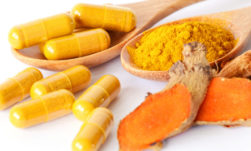Many clients that I work with are on one, if not multiple, medications; all of which are intended to suppress seizure activity. Many adults and parents come to me with several supplements in place, all in an effort to naturally suppress the seizures, as well. I was one of those parents.
Now as a practitioner, my focus is not necessarily on how to suppress the seizures, but rather support the systems (not symptoms) that are dysfunctional and identify infections that may be inhibiting these systems. Therapeutic intervention often requires that anti epileptic drugs and supplements co-exist without first ensuring that they will not cause harm.
I recommend to all of my clients the free use of www.drugs.com. At this site there is a tab for an “interactions checkers”. This will allow a user to enter in the medications as well as commonly used supplements (although not all are in there). Then check for interactions. This can be an extremely useful tool for those that are concerned with interactions between prescribed medications as well as potential conflicts with supplements.
Now that I’ve stressed the importance of using caution when combining medications and supplements I’d like to share some exciting research. Recently, I came across a medical journal that studied (using a double blind placebo method) the contradictions (if any) between curcumin (the active ingredient in turmeric) and valproate, phenytoin, phenobarbitone and carbamazepine. The research was used with mice (not humans) but found that:
“Co-administration of curcumin with these AEDs in their sub-therapeutic doses prevented the impairment of learning and memory due to seizures whereas no such improvement was observed in the groups administered the sub-therapeutic doses of the AEDs alone.”
Furthermore, they concluded that improvement was only shown in those individuals that received curcumin along with their AEDs (those that did not receive curcumin showed impairment of learning). In addition, curcumin did not alter the blood levels of AEDs and did reduce oxidative stress (a known precursor to seizures and seizure disorders).
This is excellent news for many of you that may be already using curcumin. However it’s prudent of me to add one more note of caution:
Turmeric is a spice that is very high in salicylates. Many individuals that present challenges with detoxification can have challenges with salicylate sensitivity. In these individuals turmeric would be counter productive.
Bringing much light,
Lynn



